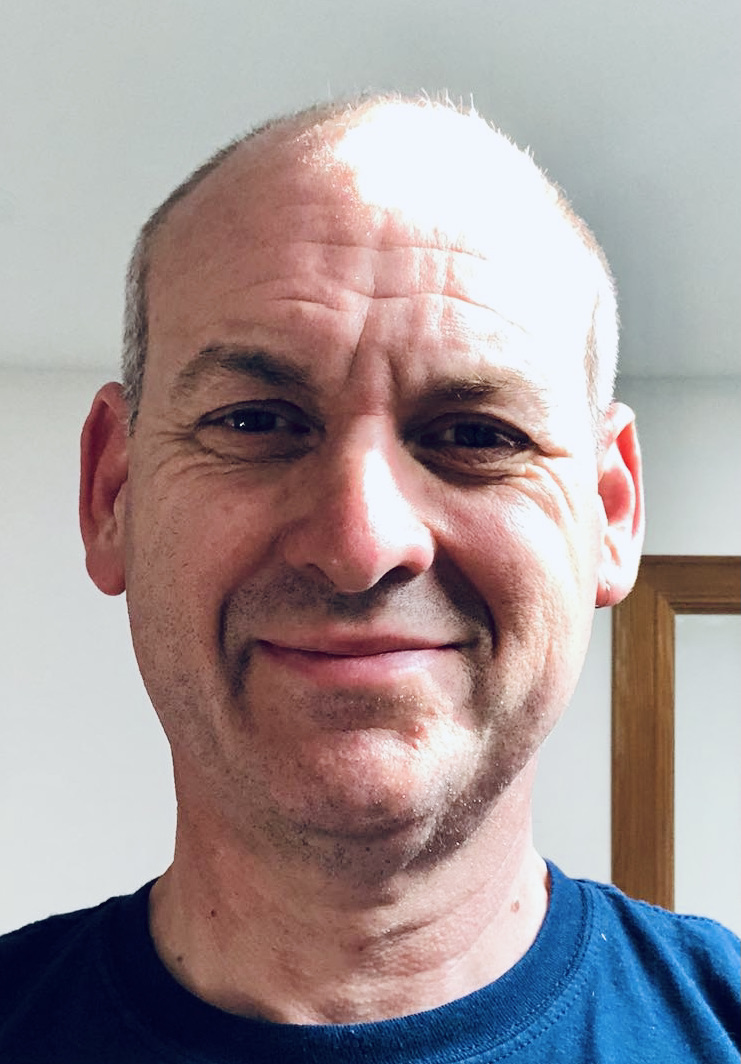Jim Thomas
On my bookshelves there is a book titled Psychotherapy and Mental Handicap, the title of the book made me cringe when it came out in 1992. Thankfully and rightly we have now mainly moved past using those sorts of old-fashioned descriptions, but when I got beyond the title I found there were a series of chapters that are still relevant.
As I think about people with a learning disability, autistic people and their families, the communities they live in and the people paid to support them there are three things from this book that I feel are issues for all aspects of education, social care and health care today. These are:
Power – and how we as people paid to support people use our power.
Control – and the reasons we give as people paid to support people to exercise that control.
Place – the environments we create to ensure that as people paid to support people, we can exercise our power and control with minimal effort.
Power
Power comes in many forms in education, health and social care. Power can be about the decisions we make to offer particular forms of support, the way in which we implement those decisions (who we listen to, who we ignore and who we pretend to listen to). It is very easy to abuse power without even realising we are abusing it. Our training, our position in the hierarchy of education, health and social care can be both liberating (personally) and intimidating (to those we work with to those we support and ourselves).
Control
Control can be legal control, and the control that others give us because we have a particular title. If you ask someone who appears to be ‘in control’ it is surprising how often they will say that they don’t feel in control. Yet control is a real part of how paid workers manage a system where resources will always be finite and how the latest thinking about treatment, care and support and peoples own experiences of what seems to work influences what people hear, say and do. With control comes responsibility for our actions and our responses to the impact our decisions have on people’s lives.
Place
The relationship between the ‘professional’ and the ‘patient’ changes profoundly depending on the place or places that relationship takes place. In a hospital it can be hard for a person or their family to challenge a hierarchy that assumes those working in the hospital are those with all the knowledge and skills needed to act in any given situation. Reverse that, and when the paid worker is visiting the person and their family in their own home then those roles naturally switch. An awareness of how where discussions and decisions take place are important to take account of. An individual will always feel more comfortable speaking out in a familiar place. What should they do in an unfamiliar place? What can people do to enable place to be a safe space for people to be equals?
In my own experience wisdom, listening and getting all the facts is central to power, control and place. If I am going to continue to appear to do the best I can, I have to recognised that my power must be exercised with restraint and with permission at all times. I must acknowledge what I do and don’t control and work with others to ensure that control is shared wherever possible and when control can’t be shared honest conversations and constant challenge is at the core of how control is wielded.
The place I and others use our power and control have to be understood for what they are – a backdrop, a safety net for us as paid workers – which will often have the opposite impact on those we are seeking to support. The pandemic has been liberating when it comes to the backdrop for the place where power and control are exercised. It is much harder to throw power and control around from your kitchen table with a cat on your knee and a child asking for a drink. We have begun to see those who we assume to have more power and more control than us as being ordinary people – this can only be a good thing for all of us.
I could have started by saying that culture was at the heart of every decision, every challenge, every opportunity, however, this felt like the easy option. Organisational culture and workforce culture are important, but unless we honestly address issues of power, control and the places where power and control are exercised we will miss the point of culture change.
It is very easy to appear to change organisation culture and workforce culture without really having changed anything. The challenge is to make change happen that is meaningful. Oliver’s story doesn’t surprise me. When I listen to his mum, I hear a story that is all about power, control and place. Unless we address issues of power, control and place then five, ten, twenty years from now things will not be much different. The protagonists will have changed and those of us fighting to make a real difference to how people are supported will still be fighting. I don’t know about you, but I wouldn’t want to be the person explaining to another family why nothing much has changed.
Paula McGowan
As I read Jim’s blog, I find myself nodding in agreement. Let me explain why. Oliver, my teenage son was living a good life despite having a diagnosis of mild cerebral palsy, epilepsy, autism and a mild intellectual disability. He was playing football for England FA development squads, was in training to become a Paralympian and had passed his school higher examinations. He was a natural leader, school prefect and was blessed with a gregarious character which drew people to him. And yet, he is dead, in what was without doubt and agreed by The Learning Disability Mortality Review (LeDeR), a totally avoidable death.
We walked Oliver into a children’s hospital in 2015 because he was having simple partial focal seizures, something he’d had all his life due to an infarction as a baby. As would be expected, Oliver was scared and anxious when in seizure, he was also in hospital and he was autistic. We explained to the clinicians how to make reasonable adjustments for Oliver. Nobody seemed to listen to us or Oliver. All decisions about what was best for Oliver were being made by others who didn’t know him. They had the power, and they were using it. Oliver ended up over medicated on psychotropic medication he did not need. He was not psychotic or mentally ill. He was a scared teenage boy, who had labels attached to him which appeared to give others the power to make decisions about him and for him. That’s not right, I can hear you saying, but it’s the truth and happens over and over to intellectually disabled and or autistic children and adults.
In 2016 the same situation happened again, with Oliver having simple partial focal seizures. We were prepared for this and we provided clinicians with Oliver’s hospital passport and letters from previous doctors saying he was intolerant to all forms of antipsychotic medication. Oliver had made an advance verbal decision that he was not to be given any psychotropic medication. Oliver in his own environment had the power to do this, we as Oliver’s parents had the power to support his wishes. Once in the hospital, all power was transferred to the decision makers – the doctors. Without following the Mental Capacity Act, they made the decision against Oliver’s and our wishes to administer an antipsychotic medication. The consequences were catastrophic, causing Oliver’s brain to swell so badly, it was bulging out the base of his skull. Oliver, at just 18 years of age, with so much to live for, died a horrific death.
Oliver died in a place, where professionals abused their power in the most shameful way possible. Oliver paid the ultimate price for that.

Jim Thomas
Jim Thomas is Head of Workforce Innovation, Recruitment and Retention at Skills for Care, the workforce development lead organisation for adult social care in England. Jim has been engaged in social care and health for 30 years. His work has included leading national programmes on workforce redesign, the development of principles for workforce integration, skills led approaches to community development, safeguarding, workforce commissioning, commissioning qualifications, personalisation, exploring workforce wellbeing, workforce productivity and workforce outcome measurement, developing the workforce supporting people with a learning disability and autistic people, exploring workforce issues on digital working, learning, information sharing AI and robotics.
Declaration of interests
I have read and understood the BMJ Group policy on declaration of interests and declare the following interests: Skills for Care employee for last 14 years.

Paula McGowan
Paula McGowan is a Multi Award-winning Activist who following the avoidable death of her teenage son Oliver, has dedicated her life to campaigning for equality of Health and Social Care for Intellectually Disabled and or Autistic people. She is an Ambassador for several charities and organisations including Health Education England. In 2018, Paula successfully launched a parliamentary petition asking for doctors and nurses to receive mandatory training in Learning disability and Autism awareness. As a direct consequence Government announced that NHS and Social Care Staff would receive The Oliver McGowan Mandatory Training in Learning Disability and Autism.
Paula temporarily lives in Australia and her campaigning is going from strength to strength. She continues to work with Government, Health Education England and Skills for Care in the design and development of Oliver’s training. She speaks at Universities, medical schools and hospital trusts across the Globe. Recently Paula spoke for The Australian Royal Commission hearing 6, Psychotropic medication, behaviour support and behaviours of concern. Paula co authored a paper on stopping, rationalising or optimising antipsychotic drug treatment in people with intellectual disability and or autism, which was published in the British Medical Journal.
Declaration of interests
I have read and understood the BMJ Group policy on declaration of interests and declare the following interests: HEE ambassador for the Oliver McGowan Mandatory Training Trials.